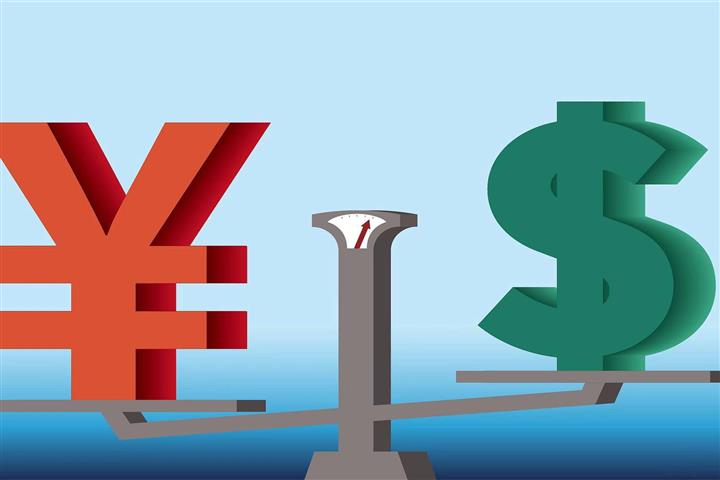 China’s Yuan Weakens Past Key Rate of 7 Against US Dollar; Redback May Sink Further, Analysts Say
China’s Yuan Weakens Past Key Rate of 7 Against US Dollar; Redback May Sink Further, Analysts Say(Yicai Global) Sept. 16 -- The exchange rate of the Chinese yuan against the constantly strengthening US dollar has breached the psychologically important 7 mark for the first time in over two years. This is not surprising and the redback will come under more depreciation pressure in the months to come, forex analysts said.
The onshore yuan softened past 7 in early trading today, following the offshore yuan which slid past 7 yesterday evening. As of 4.30 p.m. China time, the onshore yuan had depreciated 391 basis points to close at 7.0166 against the greenback. The last time the yuan-dollar exchange rate weakened above 7 was back in July 2020.
The yuan remains under pressure and the possibility that the yuan-dollar rate will soften to 7.15 or 7.2 cannot be excluded, a foreign exchange trader told Yicai Global. The depreciation, though, is not unusual compared with the Euro and Japanese yen’s slide against the dollar.
Barclays Bank has revised its forecast for the yuan-dollar rate this year to 7.15 from the previous 6.8, said Zhang Meng, macro and foreign exchange strategist at the London-based lender. But the yuan still remains strong against the International Monetary Funds’ Special Drawing Rights currency basket and China has the yuan depreciation under control, she added.
The People’s Bank of China has many policy tools that it can use to stabilize the yuan exchange rate and the country’s balance of international payments are in good order, analysts said.
Earlier this month, the PBOC trimmed the reserve requirement ratio for foreign currency deposits, or the amount of forex reserves that a bank must hold, to 6 percent from 8 percent, in a bid to halt the slide of the redback. It is the second time this year that the forex reserve ratio was lowered following a cut to 8 percent from 9 percent in May.
The PBOC will take measures to avoid the rapid depreciation of foreign exchange rates, said UK lender Standard Chartered Bank. The PBOC could issue more offshore central bank bills so as to tighten the liquidity of the offshore yuan or it may cut the forex reserve ratio further, it added.
Editors: Dou Shicong, Kim Taylor